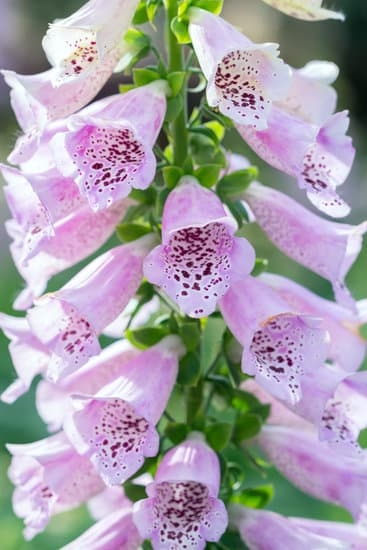Introduction
Gardening has been scientifically proven to reduce stress in many ways. This is especially beneficial, as stress can have a significantly negative impact on our overall mental, physical, and emotional well-being. In modern times when life can get overwhelmingly busy and chaotic, it is important to take advantage of any activity that can help us stay balanced and centered.
Psychologically speaking, gardening is an uplifting activity which helps to stimulate specific parts of the brain that are responsible for reducing anxiety and calming worries. With each raised bed or flowering plant we nurture with careful attention, those soothing endorphins are released into the bloodstream—chemicals which induce feelings of tranquility and serenity. Compassion and patience also tend to improve with this practice, due to the interaction gardeners have with nature and its intricate beauty. Working towards a common goal outdoors brings clarity to our minds; aiding in distancing ourselves from overwhelming worldly issues. When feeling overwhelmed with emotions such as depression or grief, stepping out into the sun-soaked soil can provide a therapeutic boost of emotion—one that quiets a volatile mind and repossesses us from burdening thoughts.
On top of psychological benefits, scientific studies have found numerous physical improvements from engaging in gardening activities such as increased strength capabilities in individuals within all age ranges; reduced fatigue and depression; lowered cholesterol levels; improved respiratory function; eased muscle tension; lessened joint aches; improved posture/balance/coordination; better digestion regulation/nutritional absorption/metabolism capabilities; enhanced heart health; improved skin tones through exposure Vitamin D which is abundant outdoors during daylight hours; improved immune health via environmental exposure to nutrients found naturally outside; strengthened senses in relation to sight (gasping colorful flowers blooming across green grasses) smell (wild scented aromas produced by different plants) hearing (beautiful chirping bird melodies resonating through quiet gardens) touch (feeling freshly tilled soil between callused fingertips); increased sleep quality due being exposed natural peacefulness throughout the day often leads one towards evening slumber more fulling refreshed than usual for example! Lastly it allows for creative outlets – practically every gardener enjoys experimenting with different types vegetation décor pieces even if they end up unsuccessful over time certain elements will always remain successful due perseverance stubbornness selecting best possible outcomes each unique situation provokes.
Additionally, gardening has been proven to drastically reduce stress hormones like cortisol in individuals—hormones which cause feelings of fear or negativity whenever their levels rise too high within our bodies. Gardening encourages mindfulness as well by giving us space away from technology screens that we’re so constantly connected to—allowing us to feel more grounded in nature’s eternal cycle instead of getting lost amongst worldly chaos around us every day!
Understanding Gardening as a Source of Stress-Reducing Activity
Gardening has become increasingly popular as a way to reduce stress for people of all ages. By spending time nurturing your blooms, you can often de-stress from daily responsibilities and pressures. Gardening can provide a sense of purpose and appreciation for both nature and the fruits of your labor. Physically, digging in the dirt reduces muscle tension and increases blood flow throughout the body. This releases endorphins that make us feel energized, healthy and happy. Studies have found that even short intervals of gardening led to an increased feeling of relaxation compared to those who didn’t engage in any kind of outdoorsy activity. In addition, tending to something like a vegetable or flower garden can provide us with a sense of accomplishment while simultaneously calming our mind. Gardening also provides us with a hobby that can be shared with family members which enhances social bonding and friendships, resulting in further stress relief benefits.
The Physical Benefits of Gardening for Stress Relief
As an activity, gardening offers many physical benefits which can be great tools in managing stress. Gardening provides a gentle form of exercise which gets the body moving. Constant motion aids with maintaining good circulation levels and encourages oxygen to flow through your muscles and cells, strengthening them as it does so. For those that lead a mainly sedentary lifestyle, regular outdoor activity can be greatly beneficial for overall health and wellbeing. Furthermore, working with soil has been proven to release neurological hormones such as serotonin and dopamine that increase feelings of happiness and calmness. Lastly, engaging oneself in time outdoors naturally allows for increased exposure to sunlight. This production of Vitamin D not only helps build strong bones but also promotes better sleep patterns; an essential adding factor to alleviating stress!
The Mental Benefits of Gardening for Stress Relief
Gardening can offer a wealth of mental health benefits for reducing stress and improving overall happiness. From the physical activity involved to its calming atmosphere, planting seeds, watering plants and transferring soil offers an escape from reality that allows for relaxation and problem solving. Feeling connected to nature has been linked to decreased levels of cortisol – the hormone associated with stress. Additionally, gardening reduces cognitive fatigue as you switch from mentally engaging activities to repetitive manual tasks, providing your mind with a break from everyday pressures. Digging away in the dirt also contributes to improved body image since it subtracts focus away from negative self-talk to instead becoming wholly focused on something external, tactile and fulfilling. Gardening can also provide a sense of accomplishment that neutralizes worries and encourages optimism, as you’re witnessing your own progress with each passing day. Lastly, having flowers for decoration in your home or yard lifts up our mood — even if it’s just looking at them — which brings about a feeling of peacefulness that naturally reduces stress levels around us.
Outdoor Gardening vs. Indoor Gardening
Both outdoor and indoor gardening have their own pros and cons. Outdoor gardening is a great way to get out in the sunshine and fresh air and enjoy the benefits of fresh produce while reducing stress levels. Benefits of outdoor gardening include natural sunlight, which helps plants grow, plus plenty of space for planting vegetables, herbs, and flowers. You also don’t need to worry about providing adequate light sources as this will be done naturally by the sun. On the downside, outdoor gardens may require more maintenance due to weather conditions such as wind and rain, insects, birds or other animals that want to eat your plants, and potential issues with soil erosion or long-term flooding.
Indoor gardens are a great option for those that want some greenery inside their homes that can help reduce stress levels but don’t want to deal with all of the maintenance associated with an outdoor garden. They also provide easy access during any season and they’re usually cheaper than creating an outdoor garden space due to less maintenance requirements. However, indoor gardens come with their own downsides such as difficulty in controlling climate variables like temperature and humidity; finding adequate lighting sources since it may be difficult to utilize natural sunlight indoors; battling pests such as fungus gnats or scale bugs; plus using appropriate soils or fertilizer solutions that are designed specifically for indoor plants can become costly over time.
Tips for Starting a Stress-Reducing Garden
Gardening has been proven to reduce stress and positively affect your mental health. Studies have shown that gardening provides a sense of purpose, reduces anxiety, and even helps to boost concentration. One of the most beneficial aspects of gardening is that it’s an activity you can do alone or with others. Whether you’re gardening solo or in a group, you can benefit from this activity’s calming effects. Here are five tips to help you get started on creating the ideal stress-reducing garden:
1. Choose the perfect spot. Pick a space that has ample sunlight and is away from noise and busy traffic – somewhere that feels peaceful and inviting. This will help to set the mood for your garden experience.
2. Get creative with planting choices. Think about what plants appeal most to you and use them as focal points in your garden design – choose colorful flowers or herbs for added vitamin D and aromatherapy benefits in your space!
3. Consider landscaping materials carefully. When it comes time to adding some hardscape elements like mulch or stones, pick varieties that will further set a serene atmosphere – choose natural materials like rocks and wood chips over synthetic alternatives such as plastic gravel or artificial turf.
4. Activate your sense of smell by adding scented foliage plants like lavender or jasmine (especially near entrances). These types of plants will infuse the air with soothing aromas as soon as you enter your garden oasis!
5. Don’t forget about comfort – if there’s room, add outdoor seating options like porch swings, Adirondack chairs, benches, etc., so that you can take advantage of every moment in your special place when feeling overwhelmed by stressors from daily life!
DIY Stress-Reducing Garden Projects
Gardening is a great way to reduce stress and relax. Studies have shown that interacting with plants can lower cortisol levels, which helps to lower anxiety and stress levels. Gardening offers the opportunity for people to be creative, learn new skills, get exercise and enjoy being outdoors – all of these factors contribute to reducing stress levels. There are several different DIY gardening projects you can try at home in order to promote relaxation.
One project is creating a zen garden. This type of garden usually consists of sand or gravel, along with decorative stones and a shallow pool used to create images such as curved lines or circles in the sand by gently shaking them on the surface. Other elements you may want to add could include an ornamental bridge, wind chimes, some form of water feature such as a fountains or bubbling rocks and organic-shaped rocks or sculptures. Planting calming plants such as lavender can also help bring about feelings of calmness in your garden environment.
Creating sensory gardens is another great way to reduce stress through gardening. Sensory gardens are gardens intended specifically for making use of the senses; typically five senses: sight, smell, taste, touch, and sound (auditory). You could grow different herbs for cooking or for fragrance like rosemary or lavender; plant flowers for their vibrant colors; design paths covered with moss and stones for people to walk on with bare feet; choose shrubs that have unique leaves or berries so people can pick them off with their hands; or set up birdfeeders so that birds will come flock to your garden and make soothing sounds with their chirping.
DIY gardening projects give everyone the opportunity to enhance their physical mental well-being while cultivating a beautiful space at home that they can enjoy whenever they need a break from the outside world.
Conclusion
Gardening is a great way to reduce stress. Spending time with plants and taking care of them can help you unwind and clear your head. Gardening provides an opportunity for physical activity, which has been shown to improve mental wellbeing. Additionally, the beauty of flowers may help lift your mood and brighten your perspective. Lastly, interacting with nature can be calming and allow you to take a moment away from everyday worries.
In conclusion, gardening is a fantastic way to reduce stress in our lives. It provides us with an opportunity for physical activity which releases endorphins that are essential to feelings of positivity, while also helping us mentally disconnect from our day-to-day worries as we connect with nature. The presence of flowers can also promote feelings of calmness while adding a sense of beauty that many find comforting. Thus, it is easy to see why so many people have found solace in gardening over the years – it is an effective tool for both relieving stress and improving overall wellbeing.
A Final Word of Encouragement and Resources for Further Reading
Gardening can be a powerful and effective way to reduce stress. Time spent amongst nature, among plants and flowers, can help the body relax and calm the mind. Working with your hands allows you to step away from daily struggles, worries and anxieties, just long enough to give yourself a chance to recuperate. The colours of nature can help bring joy and appreciation for beauty, which helps with reducing stress levels. Gardening also allows an individual to focus their energy on something creative rather than on negative thinking – even small projects can be very rewarding.
There are numerous mental health benefits associated with gardening. Gardening promotes mindful behaviors that lead to greater resilience when faced with stressful situations in one’s life. In addition, gardening involves physical activity which raises endorphin levels while spending time outdoors boosts our Vitamin D intake which is beneficial for overall well-being too. For those who suffer from anxiety or depression, tending a garden may help reduce symptoms by providing an activity that requires focus on something other than anxious thoughts or sadness.
Furthermore, many people find networking with other gardeners sharing tips, advice and stories soothing as it takes away both feeling isolated or overwhelmed. The sense of accomplishment one gets from growing their own fruits, vegetables or flowers gives them a sense of purpose through having increased self-confidence in taking on Nature’s challenges head-on. In conclusion, gardening provides a proven method for reducing stress thanks to its ability to promote both physical health benefits as well as emotional states of relaxation and mindfulness allowing us all to experience better mental well-being through the simple act of enjoying nature at our own pace!
To extend support and encouragement for further exploration into the therapeutic aspects of gardening there are many resources available online detailing helpful tips on how to pick plants that work best in particular climates plus what tools will make your life easier when tending a garden bed. Numerous books explore the relationship between humans and plants as well as how cultivating a garden has been used in many cultures over centuries to encourage creativity and provide spiritual growth through connection with nature – these titles offer inspiring reading material full of valuable insight into using gardening as a therapeutic practice enabling true relaxation during uncertain times!

Welcome to my gardening blog! I am passionate about plants and enjoy sharing my knowledge and experiences with others. In this blog, I will write about everything related to gardening, from tips on how to get started to updates on my own garden projects.





